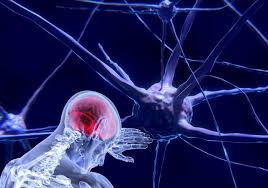Researchers have generally believed that the survival of neurons is determined nearly extrinsically, such as the tissues and cells that neurons supply with nerve cells. A research team led by Sika Zheng, PhD, a biomedical scientist at the University of California-Riverside has challenged this notion and reports the continuous survival of neurons is also intrinsically programmed during development.
The study, “Developmental Attenuation of Neuronal Apoptosis by Neural-Specific Splicing of Bak1 Microexon,” published in Neuron, identifies a mechanism the researchers say is triggered at neuron birth to intrinsically decrease a general form of apoptosis specifically in neurons. When this genetic regulation is stopped, continuous neuronal survival is disrupted and leads to the death of the animal.
“Continuous neuronal survival is vital for mammals because mammalian brains have limited regeneration capability. After neurogenesis, suppression of apoptosis is needed to ensure a neuron’s long-term survival. Here we describe a robust genetic program that intrinsically attenuates apoptosis competence in neurons,” write the investigators.
“Developmental downregulation of the splicing regulator PTBP1 in immature neurons allows neural-specific splicing of the evolutionarily conserved Bak1 microexon 5. Exon 5 inclusion triggers nonsense-mediated mRNA decay (NMD) and unproductive translation of Bak1 transcripts (N-Bak mRNA), leading to suppression of pro-apoptotic BAK1 proteins and allowing neurons to reduce apoptosis. Germline heterozygous ablation of exon 5 increases BAK1 proteins exclusively in the brain, inflates neuronal apoptosis, and leads to early postnatal mortality.”
“Therefore, neural-specific exon 5 splicing and depletion of BAK1 proteins uniquely repress neuronal apoptosis. Although apoptosis is important for development, attenuation of apoptosis competence through neural-specific splicing of the Bak1 microexon is essential for neuronal and animal survival.”
An organism’s survival, brain function, and fitness are dependent upon the survival of its neurons. In higher organisms, neurons control breathing, feeding, sensation, motion, memory, emotion, and cognition. They can die of many unnatural causes, such as neurodegenerative diseases, injury, infection, and trauma. Neurons are long-lived cells, but the genetic controls that enable their longevity are unknown.
Zheng’s team now reports the central piece of the mechanism involved is a small piece of genetic sequence in Bak1, a pro-apoptotic gene whose activation leads to apoptosis. Bak1 expression is turned off when this small piece of genetic sequence, termed microexon, is spliced in the final Bak1 gene product. Exons are sequences that make up messenger RNA….







